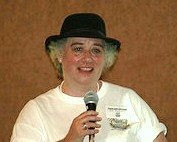
Finger
Mine
Miracle
Gray brown
Bark
Becomes me
What smell
Wet
New leaf
So bright
Touching it
Hurts until
I grasp it softly.
Voices blend
Wind
Tree boughs
Bird calls
Spring peepers
Plane! Shiny!
Voices
Gurgling water
So pretty
Voices
Found.
Why
didn’t
you
answer
us?
And leave
The joy
Of exchange
Vibrating
Color softness?
I go with
The voices
The Tree
Inside me
Deflects the pain.
Mine
Miracle
Gray brown
Bark
Becomes me
What smell
Wet
New leaf
So bright
Touching it
Hurts until
I grasp it softly.
Voices blend
Wind
Tree boughs
Bird calls
Spring peepers
Plane! Shiny!
Voices
Gurgling water
So pretty
Voices
Found.
Why
didn’t
you
answer
us?
And leave
The joy
Of exchange
Vibrating
Color softness?
I go with
The voices
The Tree
Inside me
Deflects the pain.
